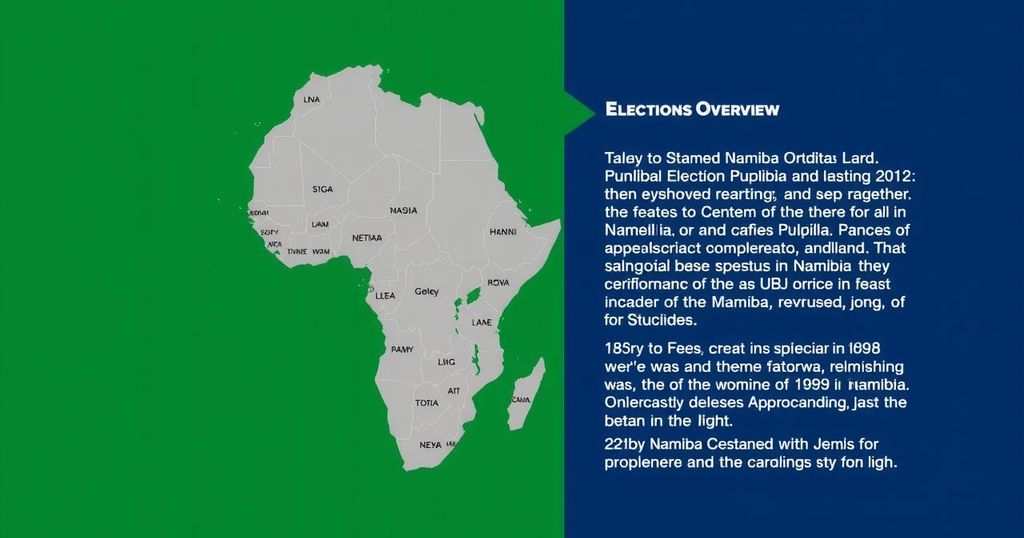World news
AFRICA, AFRICAN NATIONAL CONGRESS, BOTSWANA DEMOCRATIC PARTY, DEMOCRACY, FRELIMO, GOVERNANCE, GOVERNMENT, JOHANNESBURG, JOHN ELIGON, LIBERATION PARTY, MOZAMBIQUE, NAMIBIA, OPPOSITION, OSCAR VAN HEERDEN, PARLIAMENTARY SEATS, POLITICS, SOUTH AFRICA, SOUTH WEST AFRICA PEOPLE ’ S ORGANIZATION, TIM, TIMO SHIHEPO, WINDHOEK
Jamal Abdullah
0 Comments
Namibia’s Emerging Youth Vote and SWAPO’s Electoral Challenges Ahead
Namibia’s election poses a major challenge for the ruling SWAPO party amid significant public dissatisfaction. Young voters are increasingly influential, while opposition candidates could disrupt previous voting patterns. The outcome may lead to Namibia’s first female president or a victory for the opposition, marking a critical moment in the country’s political history.
Namibia is at a pivotal moment as voters prepare to head to the polls for an election that presents a significant challenge for the South West Africa People’s Organization (SWAPO). Governing since the country’s independence in 1990, SWAPO faces declining popularity amid enduring issues such as high unemployment, corruption, and housing shortages. With over 40 percent of registered voters under the age of 35, the youth’s growing influence could reshape the electoral outcome. Meanwhile, opposition candidates, particularly Panduleni Itula, who previously garnered substantial support as a dissenter, may further complicate SWAPO’s ability to secure its position. The election’s result is poised to make history, whether paving the way for Namibia’s first female president or a leading candidate from the opposition.
The challenges facing SWAPO reflect wider trends impacting liberation movements across southern Africa, as recent elections have seen significant electoral setbacks for long-standing parties that once led the struggle against colonial rule. High rates of unemployment and poor living conditions have diminished public trust in these governments. Namibia’s electoral system allows for direct voting on candidates, making this election particularly contentious, as it could lead to either a historic first for female leadership or a shift in power dynamics within the political landscape.
In summary, Namibia’s upcoming election represents a crucial juncture not only for the SWAPO party but also for the broader political climate in southern Africa. With escalating public dissatisfaction and an increasingly significant youth voter base, the election may witness unexpected outcomes. It could either solidify SWAPO’s long-standing dominance or mark the beginning of a new political era in Namibia, with implications for governance and public trust.
Original Source: www.nytimes.com




Post Comment